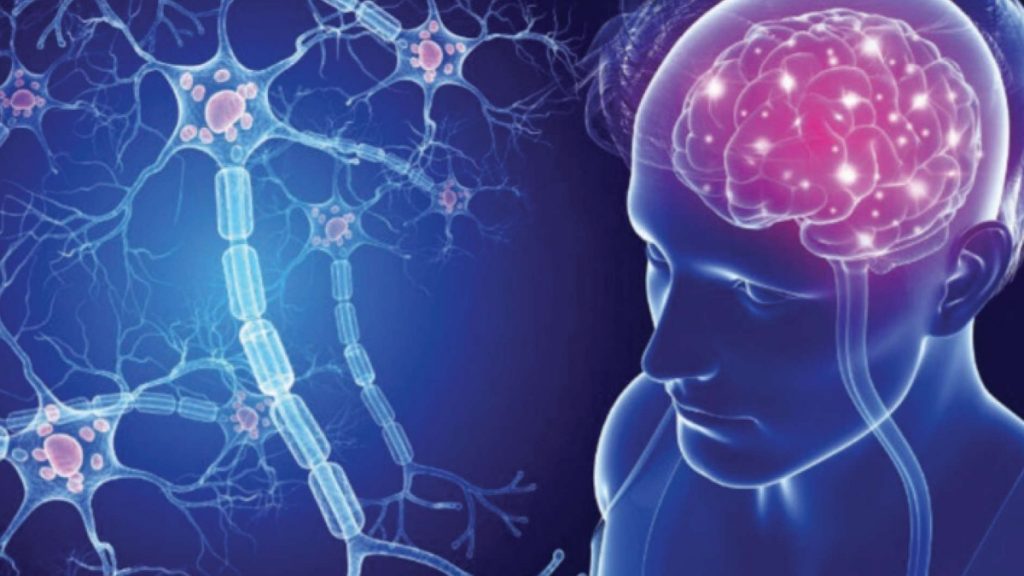News
The Role of Cannabis in Treating Multiple Sclerosis (MS)
Multiple sclerosis (MS) is a chronic autoimmune disorder that affects the central nervous system, causing inflammation and damage to the myelin sheath that covers nerve fibers. This can result in a range of debilitating symptoms, including muscle weakness, spasticity, pain, and fatigue. While there is currently no cure for MS, a growing body of research suggests that cannabis may offer some relief to those living with the condition. In this article, we will explore the role of cannabis in treating MS and its potential benefits and risks.
Understanding MS and its Symptoms

Multiple sclerosis (MS) is a neurological condition that occurs when the immune system attacks the protective covering of nerve fibers, known as myelin. This can disrupt the transmission of signals between the brain and other parts of the body, leading to a wide range of symptoms that can vary in severity and duration. Common symptoms of MS include muscle weakness, spasticity, pain, tremors, fatigue, and bladder and bowel problems. These symptoms can have a significant impact on a person’s ability to perform daily activities and maintain their quality of life. MS is a chronic and progressive condition, and there is currently no cure. However, various treatments and therapies can help manage symptoms and slow the progression of the disease. In recent years, cannabis has emerged as a potential treatment option for MS due to its anti-inflammatory and neuroprotective properties.
Cannabis and the Endocannabinoid System
The endocannabinoid system is a critical regulatory network in the human body that plays a crucial role in maintaining homeostasis, or balance. The system consists of receptors known as CB1 and CB2, which are primarily located in the central nervous system and immune system, respectively. Endocannabinoids are naturally occurring compounds produced by the body that binds to these receptors and regulate various physiological functions, such as appetite, mood, pain sensation, and immune response.
Cannabis contains over 100 cannabinoids, including THC and CBD, which interact with the endocannabinoid system and produce a range of therapeutic effects. THC binds primarily to the CB1 receptor, producing psychoactive effects such as euphoria, altered sensory perception, and relaxation. CBD, on the other hand, has a low affinity for CB1 and CB2 receptors but can modulate their activity indirectly, resulting in anti-inflammatory, analgesic, and anxiolytic effects.
Research suggests that other cannabinoids found in cannabis, such as cannabigerol (CBG), cannabichromene (CBC), and tetrahydrocannabivarin (THCV), may also interact with the endocannabinoid system and produce therapeutic effects. The complexity of the endocannabinoid system and the various compounds found in cannabis highlight the potential of cannabis as a therapeutic agent for various medical conditions. However, further research is needed to fully understand the mechanisms of action of cannabinoids and their potential for treating a range of ailments.
Cannabis and Pain Management

Pain is a frequent and debilitating symptom experienced by individuals with MS, and conventional pain management options may not always provide sufficient relief. This is where cannabis comes in as an alternative treatment option that has shown promise in managing pain. Studies have shown that cannabis can alleviate both nociceptive and neuropathic pain by interacting with the body’s endocannabinoid system. The cannabinoids in cannabis, such as THC and CBD, have analgesic properties that can reduce pain by altering pain perception pathways. Some research has suggested that cannabis may be more effective in treating chronic pain than opioids, which are highly addictive and can lead to severe side effects. While more research is needed to fully understand the efficacy of cannabis in pain management, it remains a promising option for those seeking relief from MS-related pain. It is essential to consult with a medical professional to determine if cannabis is a suitable treatment option and to discuss proper dosing and administration methods.
Cannabis and Spasticity
Spasticity is a common symptom of multiple sclerosis (MS), affecting up to 90% of people with the disease. The involuntary muscle contractions associated with spasticity can cause stiffness, pain, and difficulty with movement and coordination. While traditional muscle relaxants are often used to manage spasticity in MS patients, they can have unwanted side effects and may not be effective for everyone.
Cannabis has emerged as a promising alternative treatment for spasticity in MS patients. The plant contains compounds called cannabinoids that interact with the body’s endocannabinoid system, which plays a role in regulating muscle tone and movement. Research has shown that cannabinoids, particularly tetrahydrocannabinol (THC) and cannabidiol (CBD), can reduce spasticity and improve mobility in people with MS.
One study published in the Journal of Neurology, Neurosurgery, and Psychiatry found that THC significantly reduced spasticity in MS patients compared to placebo. Another study published in the European Journal of Neurology found that a combination of THC and CBD was more effective at reducing spasticity than THC alone.
While cannabis has shown promise for managing spasticity in MS patients, it is important to note that not all forms of cannabis delivery are equally effective. Inhalation of cannabis smoke may be harmful to the lungs, and edibles can have unpredictable effects and delayed onset of action. Cannabis-infused oils or tinctures may be a better option for MS patients, as they can be dosed more precisely and have a faster onset of action.
While more research is needed to fully understand the potential of cannabis for managing spasticity in MS patients, the available evidence suggests that it may be a safe and effective alternative to traditional muscle relaxants. However, as with any medical treatment, MS patients need to consult with their healthcare provider before using cannabis, especially if they are taking other medications or have other underlying medical conditions.
Cannabis and Fatigue

Fatigue is a common and debilitating symptom of multiple sclerosis (MS). It can significantly affect a person’s quality of life and ability to perform daily activities. Although there is limited research on the use of cannabis for fatigue in MS, some studies suggest that it may help improve energy levels and reduce the severity of fatigue. One study conducted in 2012 found that MS patients who used cannabis reported significant improvement in fatigue compared to those who did not use cannabis. Another study published in 2019 showed that cannabis use was associated with lower levels of fatigue in MS patients. However, it’s worth noting that cannabis may not be a suitable treatment option for everyone and that more research is needed to fully understand its potential benefits and risks for fatigue in MS. As with any medication, it’s essential to consult with a medical professional before using cannabis to treat fatigue or any other symptom of MS.
Cannabis and Mood

Living with a chronic condition like multiple sclerosis (MS) can be incredibly stressful and can lead to depression and anxiety. These mental health issues can further exacerbate the physical symptoms of the disease, creating a vicious cycle of pain and emotional distress. Cannabis has shown promise in alleviating symptoms of depression and anxiety, making it a potential treatment option for people with MS.
Research has shown that the cannabinoids found in cannabis can have mood-enhancing effects. THC, for example, can produce feelings of euphoria and relaxation, while CBD has been shown to have anxiolytic (anti-anxiety) effects. These compounds interact with the endocannabinoid system, which plays a role in regulating mood and emotions.
In one study, researchers found that cannabis use was associated with a significant reduction in symptoms of depression, anxiety, and stress in people with chronic pain. Another study found that cannabis use was associated with improved mood and decreased anxiety in patients with PTSD. However, it’s worth noting that some studies have also shown that cannabis use can increase the risk of developing depression and anxiety, particularly in heavy users.
It’s important to approach cannabis as a potential treatment for mood disorders with caution and under the guidance of a medical professional. Cannabis can interact with other medications and may not be appropriate for everyone, particularly those with a history of substance abuse or psychiatric disorders. However, for some people with MS who are struggling with depression and anxiety, cannabis may offer a natural and effective way to improve their mental health and quality of life.
Risks and Considerations
Although cannabis may provide relief for some MS symptoms, it is crucial to understand the potential risks and side effects. Dry mouth, dizziness, and cognitive impairment are some of the most common side effects of cannabis use. Cannabis can also interact with other medications, including MS medications, which may cause adverse effects or reduce the effectiveness of treatment. It is essential to speak with a healthcare provider before starting cannabis treatment to ensure that it is safe and appropriate for you. Additionally, individuals with a history of substance abuse or mental health conditions, such as anxiety or depression, should exercise caution when considering cannabis use. It is also important to understand that the effects of cannabis can vary widely depending on factors such as the method of consumption, dosage, and individual tolerance. Therefore, it is recommended to start with a low dose and gradually increase it as needed under the guidance of a medical professional. Ultimately, careful consideration and consultation with a healthcare provider are essential to minimize the risks and maximize the potential benefits of using cannabis to manage MS symptoms.
Cannabis for Multiple Sclerosis: Benefits, Risks, and Considerations
While the use of cannabis for MS is still a relatively new area of research, the evidence suggests that it may offer some benefits for people living with the condition. Cannabis has been shown to reduce pain, spasticity, and fatigue, while also improving mood and quality of life. However, as with any treatment, it is important to consider the potential risks and side effects before beginning treatment. It is recommended that anyone interested in using cannabis for MS consult with a healthcare provider to discuss their options and develop a personalized treatment plan.














